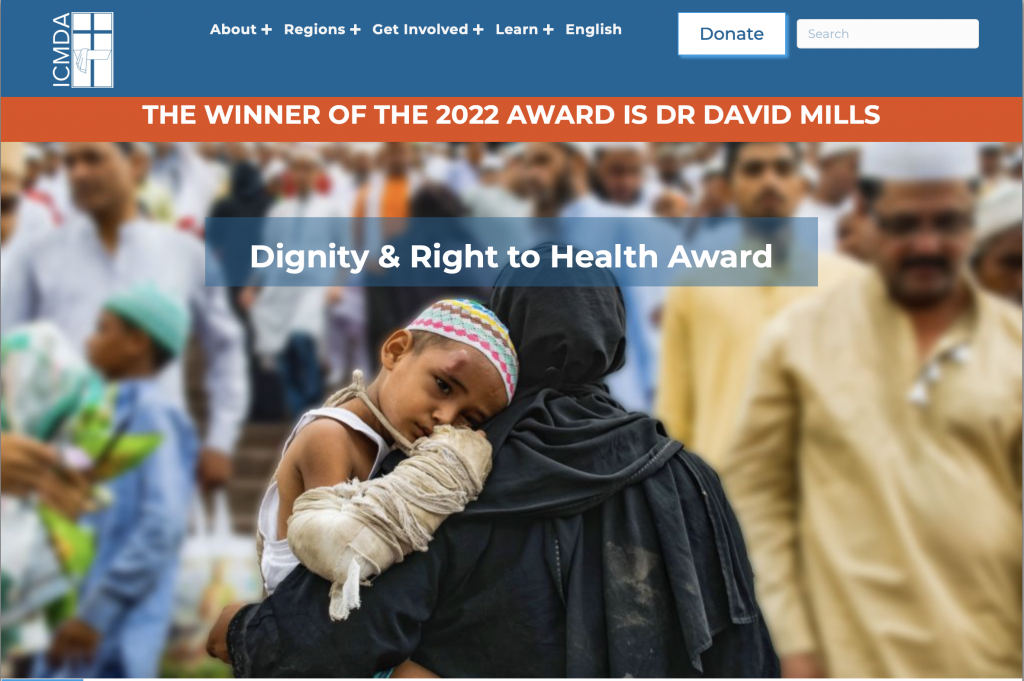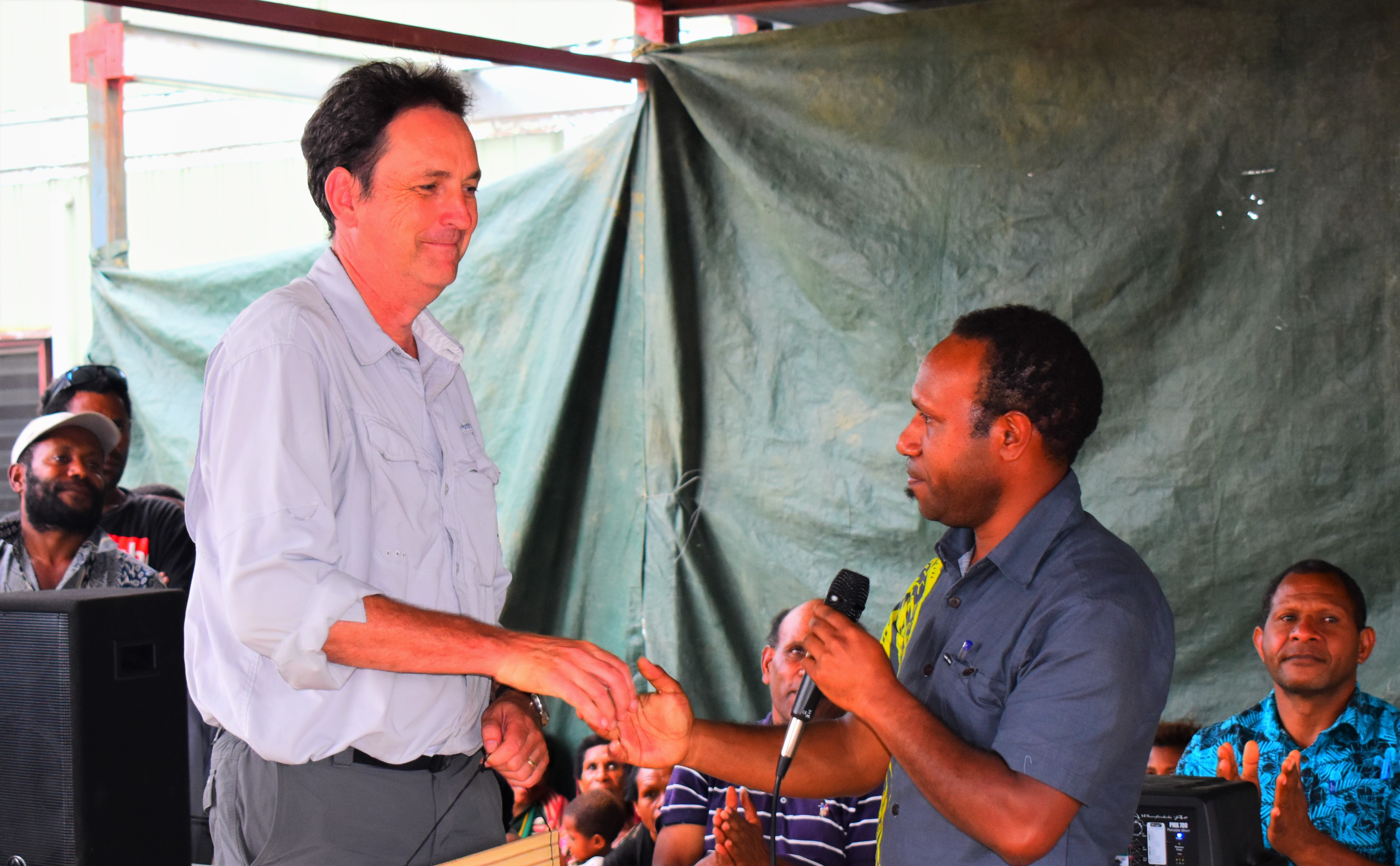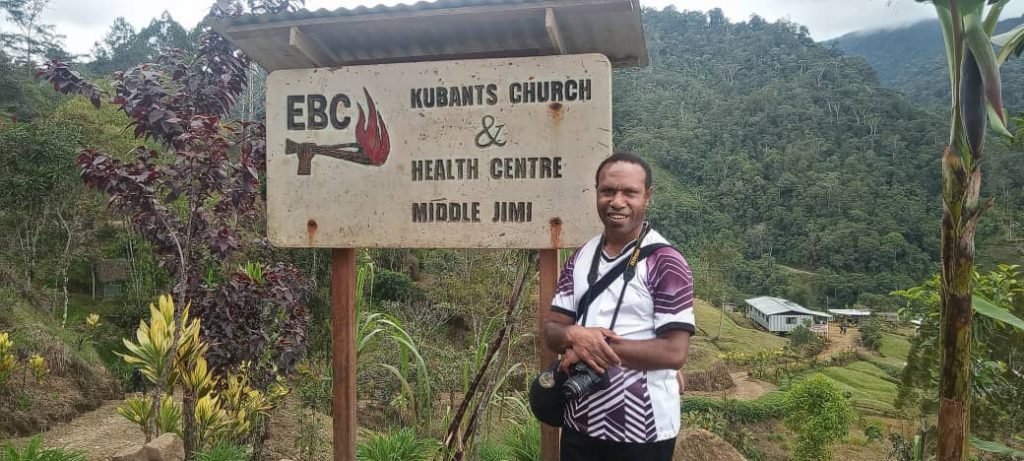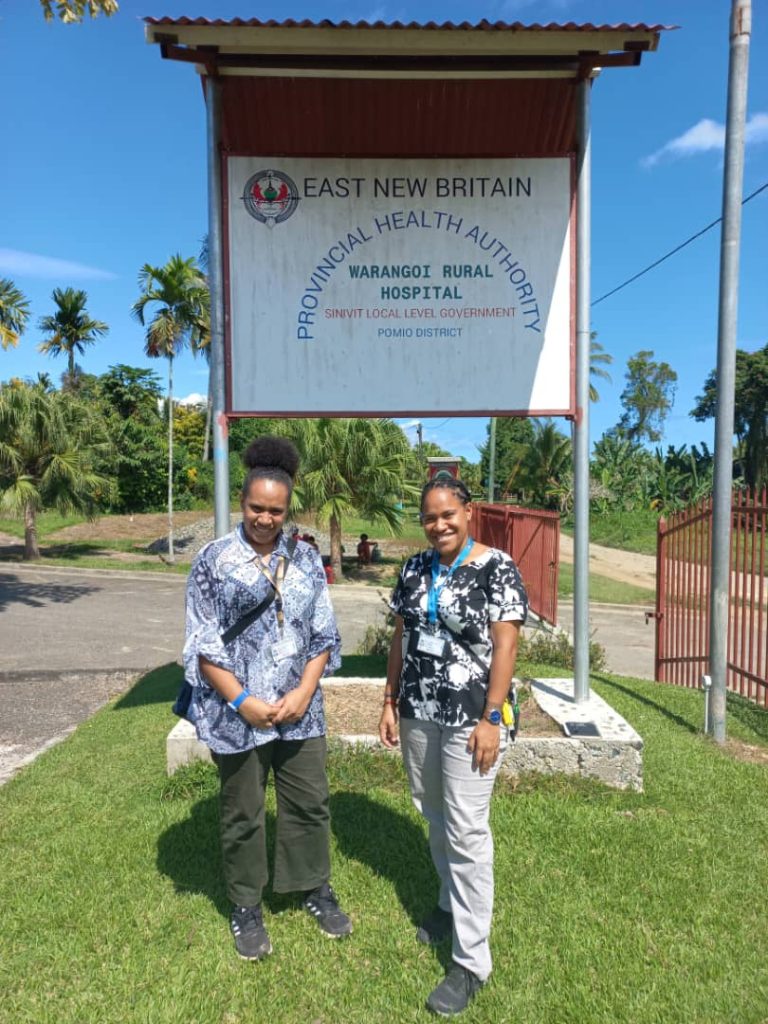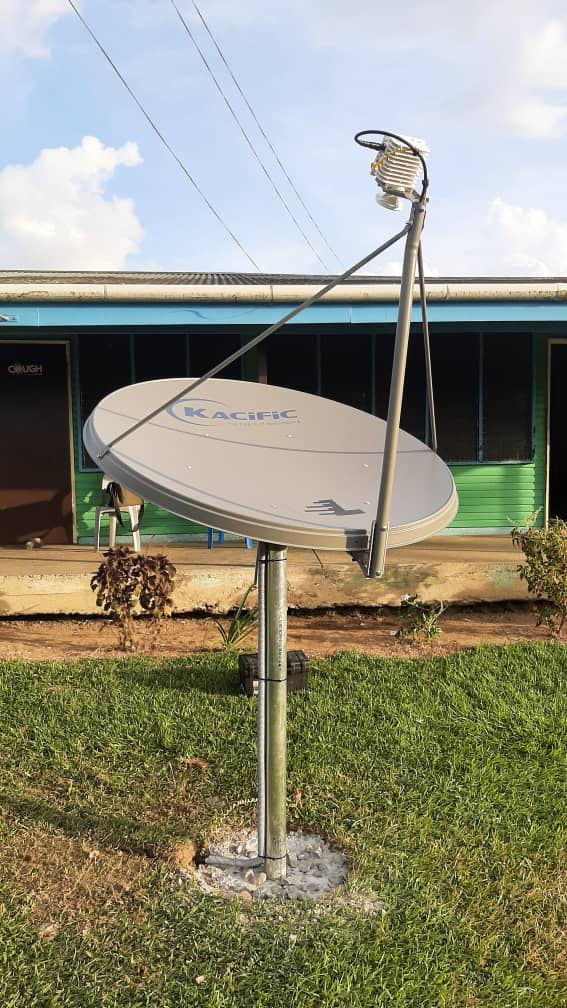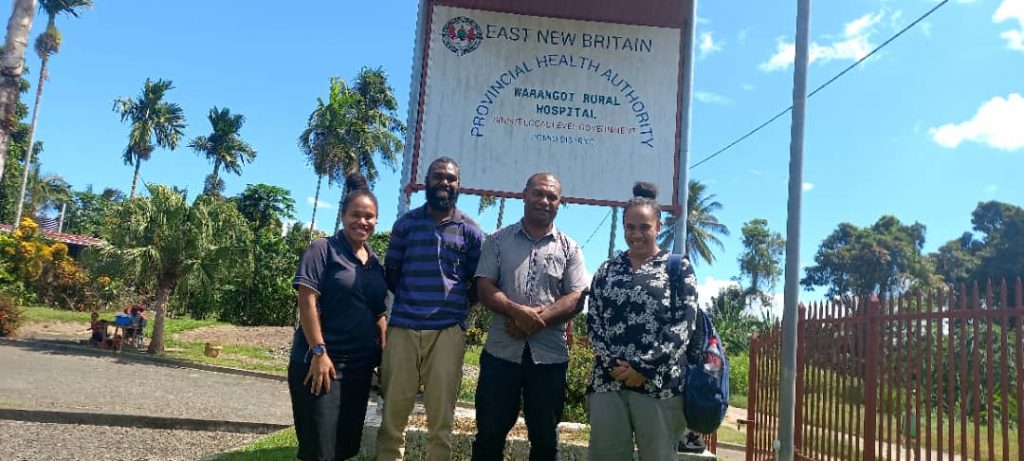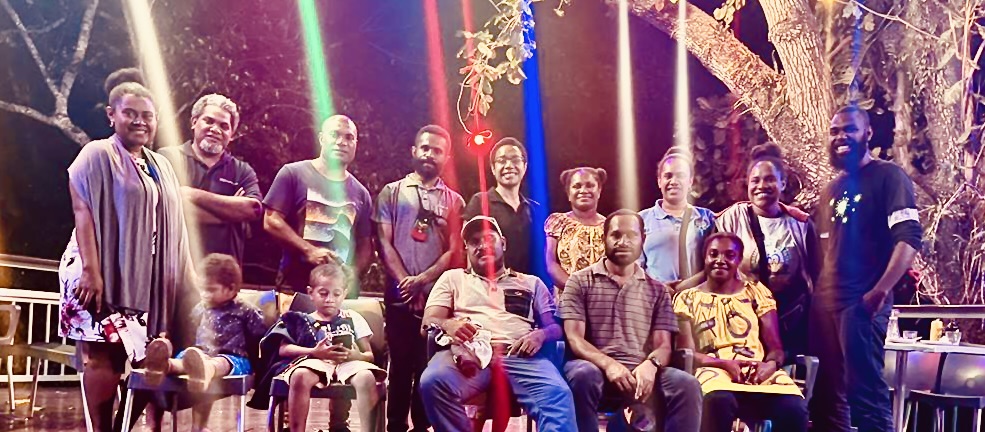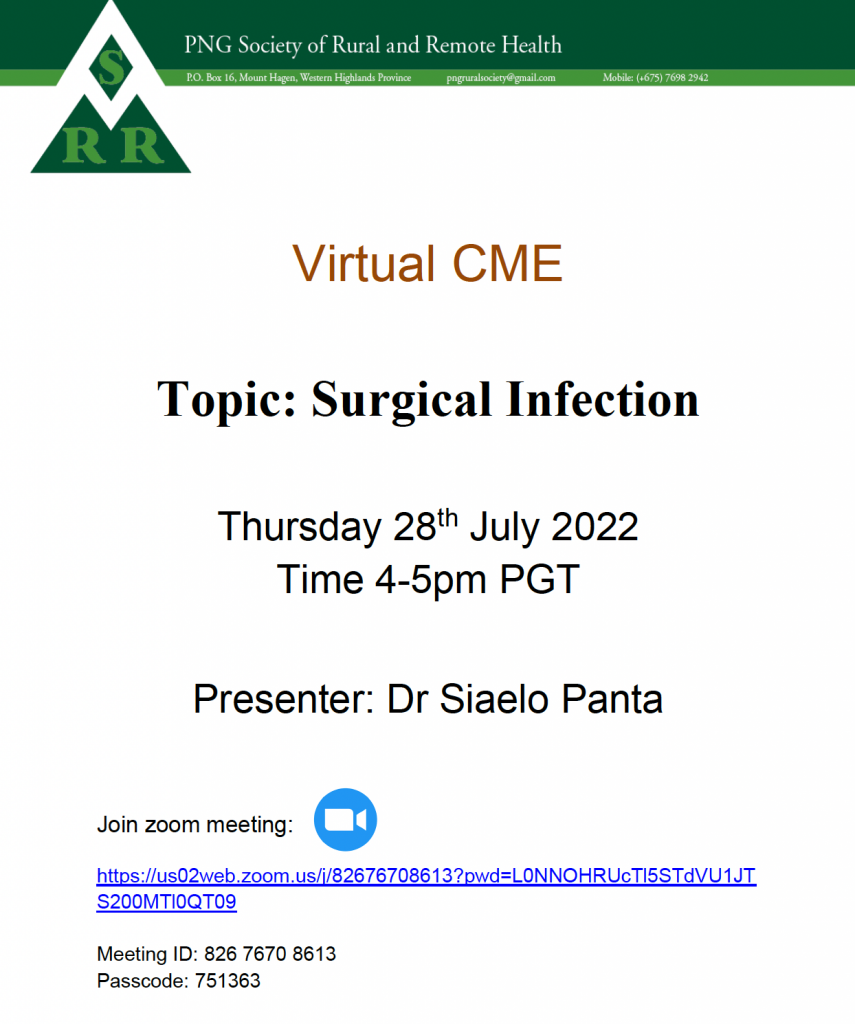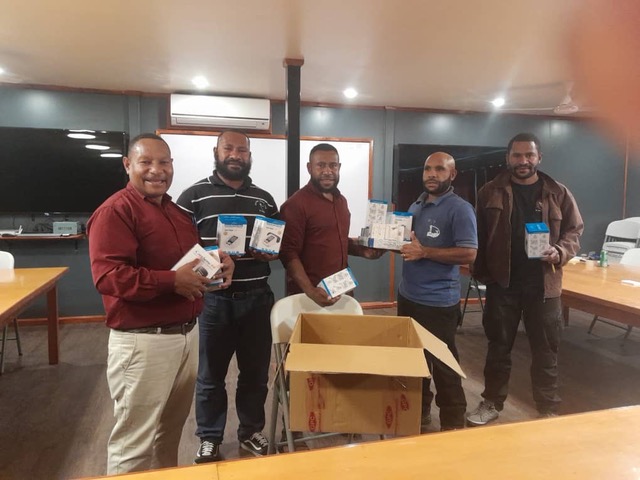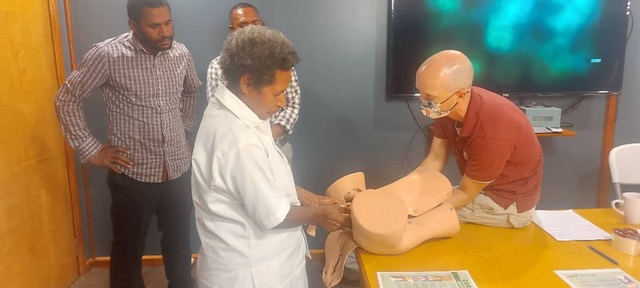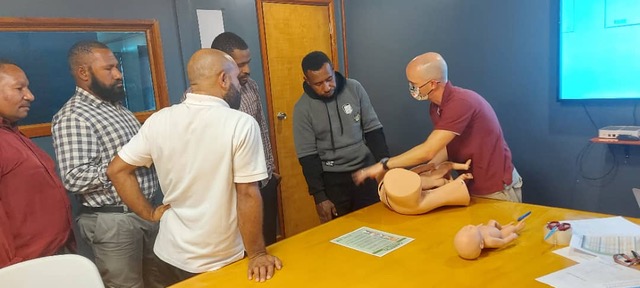When Dr Kiafuli, president of the PNG Society for Rural and Remote Health, was invited to speak at the Christian Health Services Annual General Assembly on 27th April 2023 he used the opportunity to introduce initiatives to engage and retain doctors to the rural and district hospitals. Many of the health facilities operated by the Christian Health Services member organisations are in rural and remote areas of Papua New Guinea. They all know the struggle it is to recruit let alone keep a doctor in their health facilities.
With the CHS recently being incorporated into the government Alesco payroll system Dr Kiafuli stressed that key factors for doctors serving in rural facilities was more than money. Although a salary and benefits package offered to be on par with their public sector colleagues was helpful to retain the doctor for the long term factors such as:
- professional development
- financial incentive
- job satisfaction
- social amenities
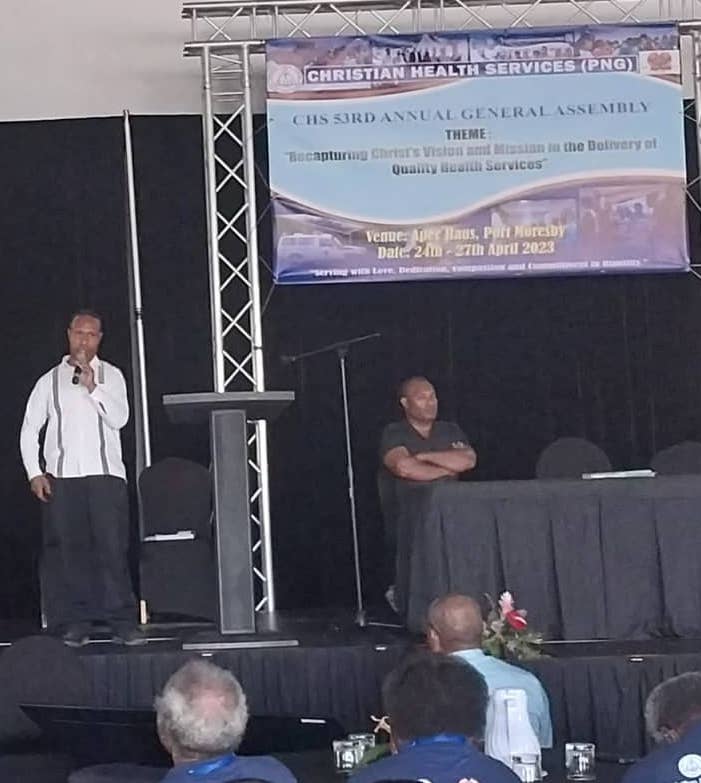
In Dr Kiafuli’s own words he summarised it thus:
“In a scoping review of various qualitative studies conducted all around the world, four themes are identified as primary factors that promote recruitment and retention of doctors in the rural areas.
- Professional Development
This factor tops the list of factors motivating doctors to remain and serve in the rural areas of their respective countries.- Post-Graduate development
Most doctors have a drive to acquire further qualifications after their basic graduate degree (MBBS). The employer must be able to nurture that drive so they will have a higher chance of retaining the doctor.
The PNG Society for Rural & Remote Health is a strong advocator of the Master in Medicine (Rural Health) post-graduate course offered at UPNG. This course gives a strategic advantage to PNG employers to recruit and retain doctor in the rural areas. It is designed in PNG, and for PNG and has few notable advantages:- It provides a curriculum drive to retain a medical doctor in the rural hospital for at least six years.
- It provides a curriculum structure that trains the type of rural generalist well suited to PNG setting, who could take on a wide variety clinical cases, contribute to leadership and management and advise on quality improvement and infrastructure developments.
- It provides a curriculum content that elevates the candidate to the master-level comparable to other master of medicine training. It gives no room for any well-informed person to accuse Rural Medicine as low-quality or boring speciality.
- Post-Graduate development
Some doctors may serve in rural hospitals but will choose against take the Rural Medicine course offered in UPNG. It is entirely up to them, and the respective employer can formally agree to sponsor for other course per individual doctors’ preference. Sponsoring doctors for in-person courses offered internationally carries the disadvantage of the doctor being absent from the hospital for 1 – 2 years.
- Continuing medical education (CME)
Apart from post-graduate qualifications, good and consistent continuing medical education support does score points in favour of retaining medical doctors in the rural areas. Each employer and their respective medical officers can communicate regarding options for that but common CME avenues to consider include:- Annual Medical Symposium organized by the Medical Society of PNG
- Specific and relevant medical conferences organized anywhere in the world.
- Short courses/trainings organized by PHAs or professional Societies, including PNG SRRH
- Subscription fees to receive access to articles in renown medical journals.
- Financial Incentives
Providing good financial incentives for doctors who work in the rural areas is, in all countries, a paramount force of retention of doctors in rural hospitals. Employers will need to be smart and creative about how to go about addressing this. Financial Incentives may take different forms:- Higher salary grade. For rural hospitals in PNG, we recommend that salary grade 14 should be the minimum for doctors living and working in the rural hospitals. This is particularly important when the doctor is also taking the rural medicine training at UPNG.
- Higher duty allowances can be given to doctors taking up leadership roles in the rural hospitals but this will largely depend on the positions to which they are contracted for, and whether provision was made for higher duties in the contract.
- Cash incentives have been made possible by partnership with DDAs and provincial governments, but may not be possible in all setting.
- Job Satisfaction
A doctor who is not satisfied in the everyday performance of duty may be difficult to retain. Factors promoting satisfaction in the workplace include a supporting clinical and administrative team. A particularly bottle-necked management will greatly injure work satisfaction of the doctor. Facilities poorly resourced will also reduce work satisfaction. On the other hand, a very supportive agency or political management can often encourage a doctor to improve resources, which will increase satisfaction for the efforts input.
It is vital for agency managers to embrace effective communication and teamwork with their medical workforce. Unity and teamwork are a strength to be nurtured.
Personal Satisfaction. Although not uniformly reported as a motivating factor, observations have been made that doctors that feels respected and appreciated by the community, hospital team and the respective management, will be satisfied with the social environment of the workplace.
- Social Amenities
Providing good housing with reliable water and power is also a vital force for retention of doctors in the rural hospitals. Ease of access to banking services, and availability of quality school for their children are amenities that promote retention (their absence reduces the chances of retaining a doctor in the rural hospital).
The provision of these amenities will need good partnership with relevant stakeholders. In particular, the political leadership of the respective districts are major players to assist with provision of these amenities. “
Dr Kiafuli then identified ways in which these recruitment and retention factors could be implemented right now in Papua New Guinea today, titled Way Forward
Way Forward
- Policy for Retention
The Master of Medicine (Rural Health) training is able to attract and retain doctors in the rural areas through a curriculum drive. There is a potential for a equally stronger drive from policy specifically on the recruitment and retention of doctors in rural areas. - Flexible Positions
The medical officer positions from CHS agencies absorbed into Alesco payroll need to be flexible enough to recruit Rural Medicine trainees in the respective rural hospitals. This is particularly true for the SMO positions – they need to be flexible enough to employ trainee registrars against that position.
The CHS Secretariat has assured that because the positions are ‘living’, and can be reviewed every two years, this will not be a significant problem. - PHA Support
While some rural hospitals are being well supported by their PHAs, some have received little or no support at all. It is disheartening to see different support level given to respective rural hospitals and their medical officers. The Society calls for an evaluation of each PHA by the National Health Department, to set a guideline (or even a policy) for each PHA in how they can support their district hospitals.

